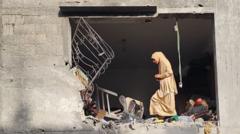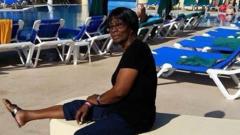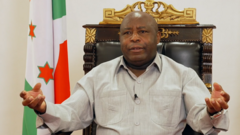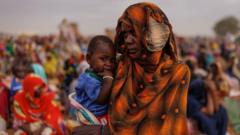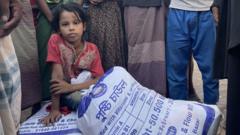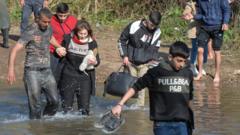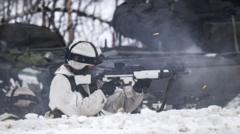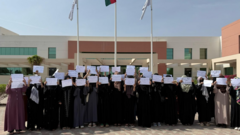Following the devastating mass shooting that claimed ten lives at a school in Orebro, Sweden, immigrant communities are expressing heightened fear and uncertainty. The lack of official communication regarding the shooter’s motives is exacerbating these concerns, prompting discussions on societal attitudes towards immigrants.
Tragedy in Orebro: A Mass Shooting and Its Impact on Sweden's Immigrant Communities
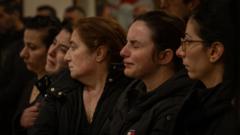
Tragedy in Orebro: A Mass Shooting and Its Impact on Sweden's Immigrant Communities
The recent mass shooting at an adult learning center in Orebro has left the immigrant community feeling vulnerable as they seek answers and grapple with loss.
In the aftermath of a shocking mass shooting at an adult learning center in Orebro, Sweden, immigrant communities are grappling with fear and uncertainty. The incident, which marked the worst mass shooting in the country's history, resulted in the tragic deaths of ten individuals, including several from immigrant backgrounds. Among them was Salim Iskef, a Syrian refugee who was a beloved member of the local community.
Jacob Kasselia, a Syrian Orthodox priest who led Iskef's congregation, recounted the heart-wrenching nature of the loss. "He was simply a good man," Kasselia shared, emphasizing the kindness and goodwill Iskef showed to others. The community is now mourning the death of Iskef, who had aspirations for a future family, as he was engaged to be married this summer.
Despite the gravity of the incident, details surrounding the attack remain sparse. Authorities have yet to confirm the identity of the gunman, who reportedly acted alone and has been described as a reclusive local man. Initial police statements suggested a lack of ideological motivation, but further investigations are underway to understand potential underlying reasons for the attack.
Fear permeates the immigrant communities in Orebro as members seek clarity. Nour Afram, who witnessed the shooting from within the school, expressed her anxiety about the implications of such violence in her community, especially concerning the safety of her children. Zaki Aydin, a Syriac language teacher, echoed these sentiments, indicating that newfound precautions include locking doors and restricting access to outsiders.
The emotional aftermath extends beyond fear; it brings to the forefront discussions about societal attitudes towards immigration. Academic researchers are raising concerns that the current political discourse may contribute to a climate of division and fear. Tomas Poletti Lundstrom remarked, “This is what happens when politicians speak the way they are speaking at the moment,” highlighting the responsibilities that come with public rhetoric.
In an environment already charged with uncertainty, the lack of official communication from police has aggravated the worry in immigrant circles. Members are increasingly reliant on media reports for information, exacerbating a culture of speculation and unease.
As the city of Orebro processes this tragedy, there has been an outpouring of grief. Vigils and memorial services have taken place, illustrating communal solidarity despite profound sorrow. Local leaders, including the city's mayor, have called for transparency and answers, emphasizing the need to honor the victims and provide peace of mind for residents.
In a country often perceived as safe, the repercussions of this massacre will likely reverberate through the community for years to come, challenging norms regarding safety and acceptance. While the authorities continue their investigation, it remains imperative for society to engage in dialogue about the roots of violence and the experiences of immigrants in Sweden.






